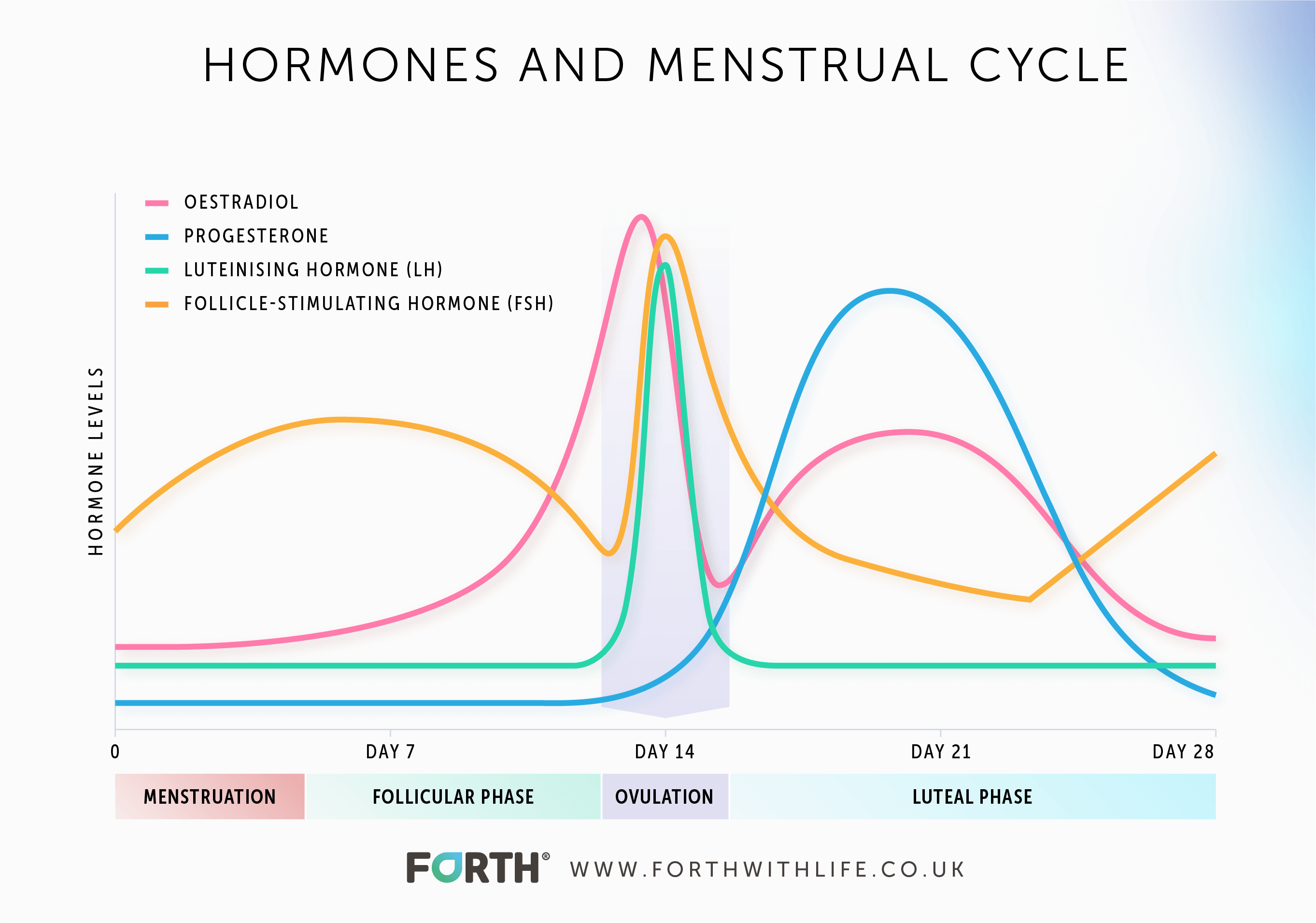3 mins read
How Does Progesterone Influence Female Fertility

Progesterone is one of the two ovarian response hormones – the other being oestrogen – which is influenced by the two control hormones – follicular stimulating hormone and luteinising hormone – throughout the menstrual cycle. Progesterone rises and falls during the menstrual cycle in response to the control hormones.
What Is Progesterone?
Progesterone is a member of the steroid hormone group, progestogens. During the second phase of the menstrual cycle, known as the luteal phase, progesterone is secreted by a structure called the corpus luteum in the ovary.
Ovulation occurs around the 14th day of the menstrual cycle and is when an egg is released from the ovary. An ovarian follicle encapsulates the egg until this point and when it ruptures, releasing the egg, a corpus luteum is formed. The corpus luteum releases progesterone to prepare the body for a potential pregnancy. If the egg is not fertilised, the progesterone levels fall as the corpus luteum breaks down and a new menstrual cycle will begin.
However, if the egg is fertilised and pregnancy occurs, progesterone will continue to be secreted and will increase. Progesterone stimulates the growth of blood vessels to the womb and the release of nutrients from glands in the womb to feed the early developing embryo. At first, the progesterone is still provided by the corpus luteum, until the placenta has developed between weeks 8 and 12 of pregnancy.

Progesterone And Fertility
Progesterone levels usually peak at around day 21 of the menstrual cycle. Progesterone levels can be tested and if it is shown that they do not rise and fall monthly, then a female may not be having regular menstrual periods or may not be ovulating. Of course, this can make it difficult for a woman to become pregnant, especially if there is no egg being released from the ovaries.
So, in short, progesterone:
- Prepares the uterus for the implantation of a fertilised egg
- Thickens the cervical mucus and the inner lining of the vagina to top sperm from getting through
- A normal menstrual period is actually progesterone-withdrawal bleeding
- If pregnancy doesn’t occur progesterone levels fall and a new menstrual cycle can begin
- If pregnancy does occur, the corpus luteum caries on secreting progesterone to sustain pregnancy
Interesting Facts About Progesterone
- Progesterone levels are naturally higher during multiple pregnancies such as twins or triplets
- Progesterone has no role in male fertility
- Progesterone is essential for preparing the female body for pregnancy
- The fall in progesterone during pregnancy is what stimulates the onset of labour
Because progesterone stimulates the body to prepare for pregnancy, there is some research that suggests progesterone may underlie certain psychological processes which also prepare females for a potential pregnancy. Therefore, rising cyclical progesterone levels may promote behaviours in females which makes them create a safe environment for them and their child.
- Health scores calculated
Close
Article references
-
Hart, R, J. (2016). Physiological Aspects of Female Fertility: Role of the Environment, Modern Lifestyle, and Genetics. Physiol Rev: 96, pp 873-909.
-
Kubota, K et al. (2016). Rethinking Progesterone Regulation of Female Reproductive Cyclicity. PNAS: 113(15), PP 4212-4217.
-
Reynolds, T, A et al. Progesterone and Women’s Anxiety Across the Menstrual Cycle. Hormones and Behaviour: 102, pp 34-40.
This information has been medically reviewed by Dr Thom Phillips
Thom works in NHS general practice and has a decade of experience working in both male and female elite sport. He has a background in exercise physiology and has published research into fatigue biomarkers.

Dr Thom Phillips
Head of Clinical Services
Related articles
Like this article? Here are some more based on similar topics.





